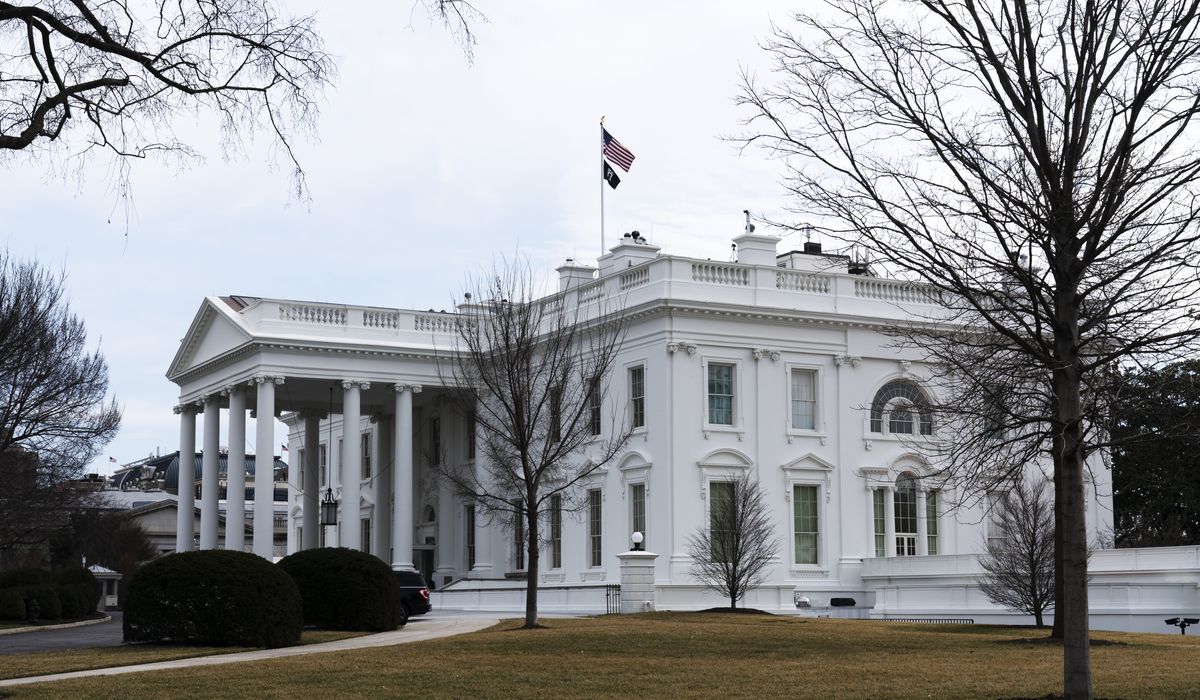

The high-stakes Saturday morning phone call between President Biden and Russian President Vladimir Putin brought no major change to the stalemate over Russian troops massing at the Ukraine border.
“There was no fundamental change to the dynamic that has been unfolding now for several weeks,” said a senior administration official, who described the talks as “professional and substantive.”
The call follows stark warnings from Washington on Friday that Russia could launch a massive military onslaught with tens of thousands of casualties in the coming days.
A senior administration official said little progress was made on the call between the two leaders.
“We believe that we put ideas on the table that would be in our and our allies’ interest to pursue that would enhance European security and would also address some of Russia’s stated concerns,” the official said. “But it remains unclear whether Russia is interested in pursuing its goals diplomatically as opposed to through the use of force.”
Mr. Biden, who is spending the weekend at Camp David, spoke with Mr. Putin for more than an hour, the White House said.
The official said the U.S. remains committed to keeping the door to diplomacy open, but also is “clear-eyed” that a Russian invasion is imminent, given its troop buildup on the Ukraine border.
“The stakes of this are too high not to give Russia every chance to avoid an action that we believe would be catastrophic,” the official said.
Mr. Biden also warned the Russian president that his country would face “swift and severe costs,” if it moves forward with an invasion of Ukraine.
He also reiterated that the widespread human suffering caused by the attack would diminish Russia’s standing in the world, according to a White House readout of the call.
Washington had initiated the call, but the Kremlin proposed holding the call on Monday, before accepting the White House’s counteroffer to speak Saturday.
It was the first time the two leaders spoke since Dec. 30.
Before speaking with Mr. Putin, Mr. Biden was scheduled to meet with French President Emmanuel Macron, who met with the Russian president in Moscow this week in an attempt to resolve the stalemate.
The Russian Ministry of Foreign Affairs spoke out before the call, accusing Western countries and the media of spreading a “large-scale disinformation campaign” about the potential for a Russian invasion of Ukraine.
He said the alleged disinformation campaign was for the West to “divert attention from their own aggressive actions.”
Russia has massed roughly 130,000 troops and a massive arsenal of weapons along the Ukrainian border, escalating fears that an attack could happen any day. Russia has denied that it intends to invade Ukraine and insists the troops are engaged in training exercises.
White House national security adviser Jake Sullivan on Friday said Russia is building up its air, land and sea power near Ukraine to the point where it could invade at any moment.
In response to what he sees as increased military aggression, Mr. Biden has threatened harsh economic sanctions against Russia should it invade.
The Pentagon has ordered an additional 3,000 U.S. troops to Poland to reassure allies. Mr. Biden has been adamant that U.S. troops will not engage in conflict in Ukraine, but rather support NATO and Eastern European Allies.
The call between the two leaders was just one of several conversations taking place in recent days to avert a potential crisis. Mr. Putin has spoken with several Western leaders, including Mr. Macron, but those talks appear to have been fruitless.
Earlier Saturday Russian Foreign Minister Sergey Lavrov and U.S. Secretary of State Antony Blinken spoke by telephone.
On Friday, Mr. Biden held a call with European leaders as they scramble to pursue a diplomatic solution to the escalating crisis.
The call included the leaders of Canada, France, Germany, Italy, Poland, Romania, the United Kingdom, NATO, the European Commission and the European Council, according to the White House.
Ahead of Saturday’s call, both Russia and the U.S. began scaling back their diplomatic presences in Ukraine.
The State Department on Saturday ordered all non-emergency employees at the U.S. embassy in Kyiv, Ukraine to evacuate as the Biden administration
Consulate services at the embassy, including passport, visa, or routine service, will also be suspended, the State Department said in a follow-up advisory. A small “consular presence” in Lviv, Ukraine will be open to handle emergencies, the advisory said.
Lviv sits in western Ukraine near the Polish border and is further away from a potential Russian invasion.
The State Department had previously ordered the families of U.S. embassy staffers in Kyiv to leave but had left nonessential personnel to decide for themselves if they want to depart.
Russian Foreign Ministry Spokeswoman Maria Zakharova said in a statement that Moscow has decided on a “certain optimization” of staffing at the Russian embassy in Kyiv and consulates throughout Ukraine.
She said the move comes amid fears of “certain provocations” by Ukraine or another nation.
